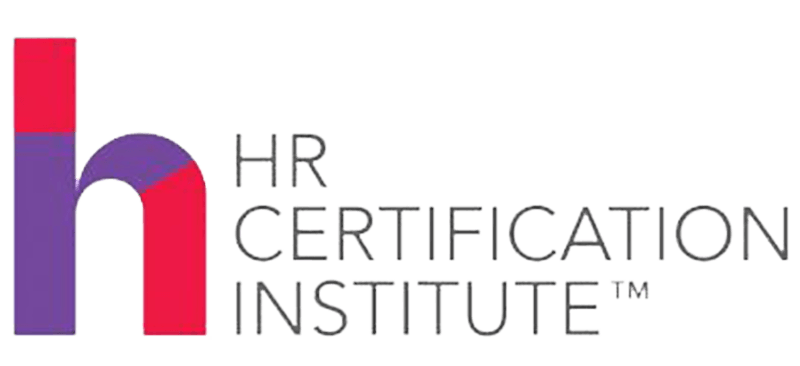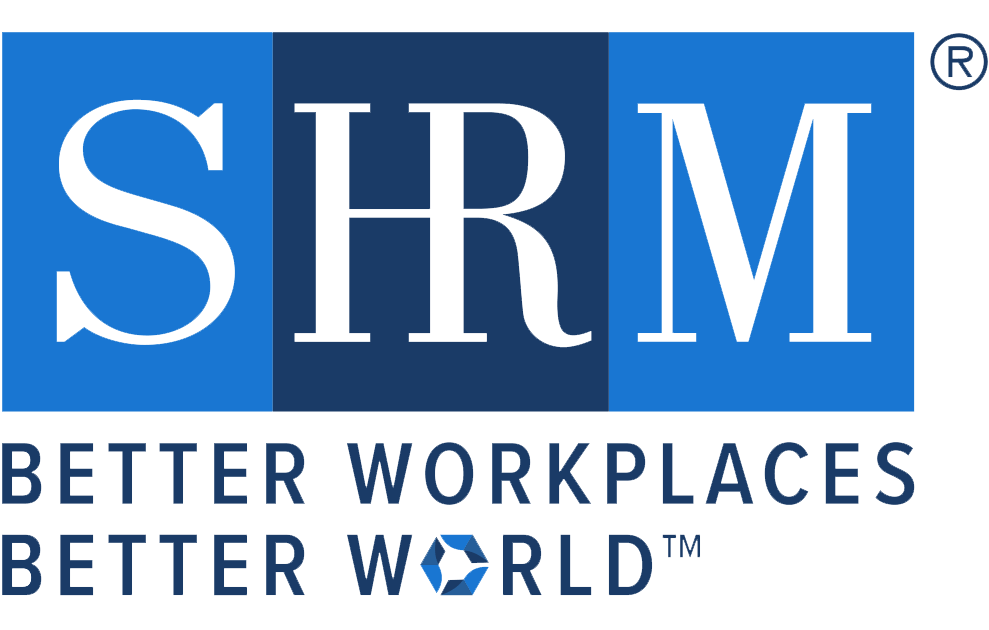Communication Skills Test for Employers: Assessment to Hire the Best
As a hiring manager, you’ve seen it before: A candidate nails their interview and charms your team with their easy demeanor.
But—
Fast-forward 30 days, and it turns out their talk was cheap. In fact, day-to-day, they have zero communication skills.
Any organization values great communication, yet it can be difficult to find job candidates who have them. They’re hard to gauge during interviews, and by the time you’ve hired a bad communicator, it’s often too late to change course. And it’s a real problem. Poor communication can derail teamwork and grind productivity to a halt.
A communication skills test can improve the chance of a great hire by 90% and ensure excellent team communication from day one. Use our pre-employment communication skills test to screen applicants and hire your next Jack Welch or Karen Lynch.
Use the communication skills test below to screen your candidates
or let The Hire Talent do it for you. We’ll screen for communication skills — along with problem-solving skills, interpersonal skills, and other aptitudes — to prequalify your job candidates automatically.
Communication Skills Assessment
The communication skills assessment below is designed to help you add objective data to your hiring process while slashing the risk of bias. Feel free to copy and paste directly. Or — use The Hire Talent’s prepackaged online test to shine an X-ray on your candidates’ skills.
1. Your team must complete a project under an extremely tight deadline. What’s the best way to go about getting the work done?
- Take a stab at your portion of the project, then come back to the group for their feedback.
- Host a kickoff meeting, invite the proper stakeholders, and create a comprehensive project plan.
- Tell your manager the work is impossible under the current time constraints.
- Ask your team to determine what tasks are critical to success, then assign roles to get those tasks done.
- Redesign the project and its goals so you can get it done on time.
Answer: D. This question measures a candidate’s understanding of the importance of effective teamwork, scope management, and role responsibility.
2. You’re having trouble working with a peer. What’s the best resolution?
- Tell your manager you’d like to work with someone else.
- Confront the individual and ask why they’re being difficult.
- Have a candid conversation and try to find common ground.
- Work independently, only looping in the peer when necessary.
- Ask another co-worker if they’ve experienced similar issues.
Answer: C. This question gauges an applicant’s interpersonal skills. The more they’re willing to work with an individual — not run away from them — the better their communication skills tend to be.
3. You have a great idea for a new product, but you’re feeling pushback from the rest of your team. What do you do?
- Tell everyone they should trust you, and that this is a golden idea.
- Listen to what your peers have to say, and use their feedback to refine your idea.
- Come prepared with so much data, your team would look silly if they disagreed.
- Circumvent the team and pitch the idea to a senior leader at the organization.
- Start from scratch and come up with an even stronger idea for the team.
Answer: B. Communication isn’t just about speaking; it’s also about listening. This question assesses whether candidates value active listening and are willing to compromise with others to ensure a positive outcome.
4. You’re feeling overworked in your role. What’s an effective way to bring this up?
- Discuss your workload with your manager, prioritizing items that are most critical.
- Go above your manager and raise the issue with a higher-up.
- Take initiative and reduce your workload to a healthy amount.
- Vent to your co-workers and ask if they’re feeling similar pressure.
- Threaten to leave the organization unless your workload improves.
Answer: A. It’s natural for an employee to feel stress in their role. Effective communicators are those who will raise their hand for help and work with their manager to prioritize accordingly.
5. You have to break some bad news to a key stakeholder in your organization. How do you go about it?
- Send the person an email and plainly state what’s happening.
- Lessen the impact by complimenting them before delivering the news.
- Be honest about the bad news, then propose solutions and offer guidance.
- Try to fix the situation yourself, even if it means delaying the bad news.
- Ask your manager if they’ll break the news instead.
Answer: C. Setbacks are unavoidable in the workplace. What separates good communicators from bad ones is the ability to problem-solve and offer timely solutions.
6. What’s the most effective way to ensure you’re sending high-quality emails?

- Keep things within a sentence or two so you’re not wasting anyone’s time.
- Insert GIFs or memes to keep things light with your email recipient.
- Run the email by a peer to get their opinion before you send it.
- Download a computer AI tool and have it write the email for you.
- Proofread the email once written, and edit for clarity and conciseness.
Answer: Self-editing is an invaluable skill among top communicators. Use this communication skills test question to ensure your candidates are comfortable with their own writing skills.
7. A team meeting that you host is scheduled for this week. How do you set your team up for success?
- Send out a reminder several days before, and include an agenda so people can prepare.
- Mandate attendance so you have the stakeholders you need to get things done.
- Stress the importance of the meeting and encourage peers to contribute.
- Prepare everything in advance, so you can spend the entire meeting presenting.
- Nominate a different person each week to take detailed meeting notes.
Answer: A. An effective team meeting doesn’t have to require attendance mandates or heavy meeting notes. A simple agenda helps bring structure to the meeting while encouraging employees to bring their best ideas to the table.
8. You’re tasked with a new project but have no idea how to accomplish it. What do you do?
- Focus on other work, hoping it’ll inspire some creativity.
- Reach out to your manager or peers, and get advice on how to get started.
- Attempt the project on your own, even if it ends up wasting time or resources.
- Do some research online and follow the instructions that appear most popular.
- Tell your manager it’d be easier to be assigned a different project.
Answer: B. The best thing someone can do when they’re overwhelmed or confused is to simply ask for help. This question gauges a candidate’s ability to collaborate openly with their team.
9. Which of the following is the healthiest way to motivate team members?
- Give team members a directive and expect them to follow it.
- Set a goal and let the team figure out how best to accomplish it.
- Create quotas to encourage competition and cut down on wasted time.
- Encourage all team members to share ideas or challenge existing notions.
- Host a yearly team-building event designed to improve employee morale.
Answer: D. All of the above are ways to improve productivity, but the most sustainable option is to have healthy two-way communication from all involved.
10. You’re in the process of onboarding a new member of your team. Which of the following shouldn’t you do?
- Set expectations early for what success looks like on the team.
- Ask them what resources or tools they need to feel comfortable in their role.
- Offer to help them troubleshoot issues, especially as they’re ramping up.
- Ask them about their career aspirations within your organization.
- Assume they have the requisite training to do their job well.
Answer: E. Great communicators don’t make assumptions about the needs of their peers. Instead, they ask timely questions and take action to avoid misunderstandings.
Pro Tip: Communication skills aren’t the only predictor of job performance. See our problem-solving skills test too.
How to Test Applicants for Communication Skills

Assessing communication skills is a difficult science — botch the chemistry, and you may find yourself on Forbes’ worst employers list. Here are four steps you can take to facilitate a fair communication skills assessment and ensure a smooth experience for your candidates.
1. Use communication skills test questions that are fair and reliable.
It’s one thing for a candidate to be passed over for a job because they weren’t qualified. It’s another for them to lose out because the test questions weren’t fair. As a hiring manager, make sure your communication skills test questions and answers are bias free.
2. Ensure your test experience is simple and intuitive.
In an increasingly digital world, candidates expect hiring experiences to be as simple and pain-free as possible. If your test experience is cumbersome or unintuitive, good candidates might head for the competition. Audit your technology to ensure it’s up to snuff, then watch as your candidate pipeline grows.
3. Put applicant safety first.
Candidates are used to having their data monitored, but that doesn’t make it any less scary for them. According to the U.S. Department of Commerce, 73% of online households worry about data breaches. By securing candidate data on an encrypted server, you’ll build trust with applicants.
4. Be consistent in candidate scoring.
One of the worst things recruiters can do is be wishy-washy with their scorecards. The more you rely on gut feel, the more bias can creep in. So — use only proven communication skills tests like The Hire Talent’s, designed to add objectivity to your hiring process.
How We Created this Communication Skills Test
Applicants are drawn to brands they trust. By embedding an online, science-backed communication skills test into your hiring process, you’ll build trust and become the next Apple or Adidas in your industry.
The Hire Talent’s communication skills assessment was built with rigor. The team started with a set of science-backed communication skills questions, administered them to a large sample group, and ran competitive and statistical analyses to refine the question pool.
The result is a communication skills test you can sink your teeth into, using it to avoid risky candidates, zap bias, and add objectivity to your hiring process, all while prioritizing DEI in a way the “normal” hiring process can’t.
Benefits of Online Communication Skills Testing

Online communication skills testing done right is a lightweight, powerful way to find cream-of-the-crop candidates in any market. Whether you’re looking for your next individual contributor or a new member of the executive team, our communication skills assessment will zero in on the Josh Bersins and Meghan Biros in the applicant pool.
Below are some of the benefits associated with online communication skills testing:
-
- Remove hiring bias: Interviews are known to lead to bias due to human nature. A pre-hire communication skills assessment can drastically reduce potential bias.
- Predict job performance: Candidates who take a pre-employment communication skills test tend to receive higher overall performance ratings by their supervisors.
- Increase ROI: According to the U.S. Department of Labor, the average bad hire equates to 30% of a person’s first-year earnings. Cut down on mishires, and you’ll save money.
- Decrease time to hire: According to Glassdoor, the average hiring process takes a whopping 23.8 days. By using a pre-employment assessment, you’ll slash that time significantly.
- Increase retention: Applicants who showcase strong communication skills also tend to be better culture fits.
- Lower hiring costs: A communication skills test is a low-cost option that’s easy to implement, making it a practical solution when you’re looking to scale.
Why Are Communication Skills Important in the Workplace?
Communication skills are the fiber-internet connection of your workforce. When workplaces lack them, collaboration isn’t possible. Goals set by senior leaders aren’t properly shared with those on the ground floor. At worst, bad communication will sabotage your organization and its bottom line.
Consider Kodak, which successfully developed the first digital camera back in 1977. Despite this astounding innovation, the company failed to communicate its importance to its workforce and to customers, missing out on a multi-billion-dollar market.
Beware: The best communicator in the world can be the worst hire if they’re not honest. See our honesty test too.
What Roles Need Communication Skills Testing?

Nearly every job title benefits from strong communication skills. Can you imagine a role that functions well in an atmosphere of misinformation? Imagine the crew of Apollo 13 saying, “Houston, everything’s fine.” (Everything most certainly would not be fine.)
Here are common job roles that benefit the most from great communication:
-
- Career Advisor
- Clinical Psychologist
- Customer Service Representative
- Financial Advisor
- Fitness Trainer
- Guidance Counselor
- Journalist
- Lawyer
- Marketing Manager
- Nurse
- Pharmacist
- Physical Therapist
- Product Manager
- Public Relations Specialist
- Relationship Manager
- Sales Representative
- Social Media Manager
- Social Worker
- Teacher
- Training Specialist
- Any one in leadership
- Pretty much everyone
Summary
Communication skills are always in demand, yet many employers struggle to find candidates who truly excel at them. By leveraging our communication skills test, you can join more than 1,000 organizations currently using The Hire Talent to level-up their hiring process and secure exceptional talent.







